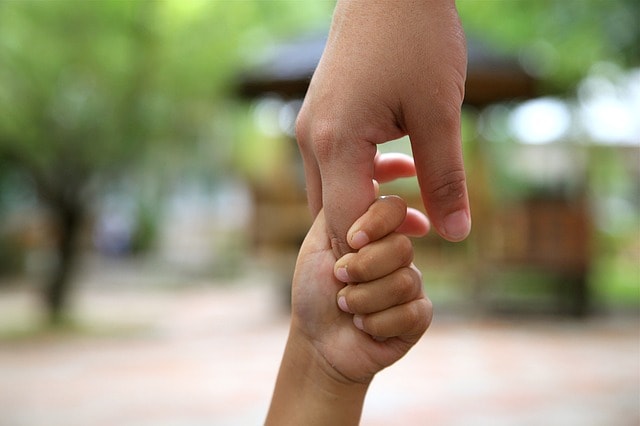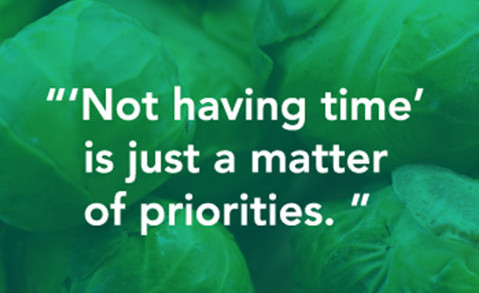Learning to let go is one of the toughest lessons to learn as a parent, but it is an inevitable rite of passage that all must go through at different stages along the parenting journey.
“Parenting has two conflicting roles, nurturing, but also supporting a child’s independence and building up his own personality. It can be very painful to go from one to another,” says clinical psychologist Dr Victoria Samuel.
There’s another well-loved quote by Elizabeth Stone that goes
“Making the decision to have a child – it’s momentous. It is to decide forever to have your heart go walking outside your body.”
How true is this for you?

Becoming a parent is about opening yourself up to a lifetime of joy and relationship, but it is also about the worry and fear that come along with the journey. It begins from the moment your child comes into this world, continues to the start of school days, and keeps going even until they leave the nest one day.
We asked a few parents to share their personal experiences of letting go. In every season, it would seem that letting go comes in new forms and shades of meaning.
Grace had been working as a nurse at Tan Tock Seng Hospital even before she started a family. When her first child, Isabel, was born in 2012, she made the difficult decision to put her into infant care when she was nine months old, and return to work.
1. What made you decide to put Isabel into infant care when you returned to work?
Our parents (Isabel’s grandparents) were still working at that time, and could not help us to look after the baby. We also thought that this would be a good opportunity for our children to learn independence from a young age.
2. What were some of your concerns about putting her in infant care?
We did worry that she would not get the attention she needs or be cared for properly since there were many other babies for them to look after. We were also concerned about her falling sick.
3. What was the first day of infant care like for everyone?
Honestly, it was horrendous! I cried and cried so much. Luckily, my husband was with me, and he distracted me by bringing to have a nice breakfast. Slowly, over the weeks and months, we all adjusted to the new routine and experiences.
4. Any tips to share with other mums who are planning to return to work?
I think it’s very important that you trust the people you place your child with – whether it is your parents, a nanny or infant care. Do your research properly if you are planning to send your child to infant care, to find out what others have said about the place and find out about the kind of care and attention the centre can provide. It’s not an easy journey to let go and let your child be loved and cared for by others, but over time, it does get easier and better.
⇒ Related Read: Grandparents Or Childcare? Important Factors To Consider
 Grace and Isabel
Grace and Isabel
Su is a homemaker mum to Bethany, who just began Primary 1 earlier this year. She and her husband chose to send Bethany to one of the primary schools in their neighbourhood so as to avoid longer travelling times. Two terms in, Bethany has settled in well into this new phase of school life.
1. What were some of your concerns for Bethany before she went to Primary 1?
I was concerned about the early reporting time for school, as she would need to get to bed much earlier in order to get ample rest. I wasn’t sure if it would be too tiring to get through half a day of school every day. Another concern was whether she would be able to buy food on her own during recess time. As for academics, I wondered if she would cope well with her studies, especially Chinese.
⇒ Related Read: Is Your Child Ready For Primary School?
2. How did you prepare her for the transition to Primary 1?
My husband and I shared with her about the longer school hours so she would know what to expect. We moved her bedtime earlier a few days before the new year, so she could get used to the routine. We also looked for opportunities for her to practise ordering her own food when we went out – we would give her money to pay for the purchase and ask her to line up and order the food herself – to build up her confidence in this area.
During her kindergarten days, I also gave her some assessment books to do at home, to prepare her academically for Primary 1 work.
3. What was the first day of school like for you?
I was quite excited for her and still a little concerned. However, I was confident that she would be fine as she can make friends easily.
4. Do you have any tips to share with other parents whose children are about to start Primary 1 soon?
I think it’s good to share with your child what will be expected. Don’t worry about what some may say about needing to teach them “this and that” before they reach Primary 1, “if not they will fall behind”.
I disagree, as most schools will start from the basics and there will be ample time to catch up. By all means, do assessment books and such, but make learning fun for the child too. Help them to build that pride of growing up and learning new things.
 Su and Bethany
Su and Bethany
Ruth is mum to four boys (ages 1 to 9 years old). Her second son began Primary 1 this year and she and her husband made the decision to allow him and his older brother (P3) to take the public bus to and from school on their own.
1. What made you decide to teach your boys to take the bus to school?
My oldest son used to take the school bus to school in P1 and P2. But with our second boy going to primary school this year, we could ill afford the school bus fees ($160 per child every month) anymore. This was compounded by the fact that I had stopped part-time work after my No. 4 arrived.
2. How did you prepare your boys to travel on their own?
As we travel via public transport frequently, our children are aware of the routes to take to go to places we often visit. Furthermore, the route to and fro school is quite straightforward, with only one road to cross, which is in front of the school.
After the Primary 1 orientation last year, my husband coached the boys on the route that they were to take, pointing out key things to note as we travelled home. Before school ended last year, we had our firstborn try out the route himself, and he was able to successfully keep within the estimated time frame to reach home.
3. On that first day when they went to school on their own, how did you feel?
I was quite apprehensive about letting them travel on their own all along, and there was also some guilt that we are not financially able for them to travel by school bus instead. So, on that day, I was quite nervous! My husband and I kept checking the bus app timings and our clocks for the time. Thankfully, they made it!
4. Do you have tips to share with parents who want to let their children take public transport on their own?
I think this is definitely an important life skill to teach your child. Encourage them to be brave to try this for themselves, and do prepare them about what to expect on the route and what to do in the event that they get lost. Start them on routes that they are more familiar with, and of course, trust that they will be ok!
Annabel’s son, Raphael, took the road less travelled when he chose to go to Singapore Sports School after his PSLE. He graduated in 2016 and is currently serving his national service.
1. Who made the decision for Raphael to go to sports school? Was it his dream, or a decision made by you and your husband?
When Raphael was in Primary 5 and had completed his National Survival Swimming Award swimming examination, his swimming instructor encouraged him to get into competitive swimming because of his body shape. We thought it was a good idea because it would provide a new challenge for him.
At the end of P5, he joined the first race of his life and loved it – he was certain that this was what he wanted to do from now on. Raphael is by nature easy-going in most things, but his passion for swimming stood out quite clearly, and we could see his discipline in waking up early for training and putting in his best effort.
So, when it was time to choose a secondary school, Singapore Sports School became a natural choice for all of us.
2. Not every parent can make such a decision based on their child’s passion and not every dream becomes a reality. What gave you the courage to make the call then, and what was the journey like thereafter?
From the beginning, we were positive and supportive about this decision because we believe that every child should be given the chance to pursue his dreams. We saw how passionate he was about training. Even though his swimming journey was marred with painful disappointments, he pressed on.
As he faced various challenges during those years, I did question myself if we should have chosen another path for him instead of swimming, as we slowly realised his dreams were nowhere near his reach.
But as I reflected on this more, even if he did not get the coveted medals and fame, the ten years in the Sports School have developed a tenacious character in him, brought about by his repeated failures and learning to pick himself up again. I’m thankful for that.
3. Any tips/encouragement for parents whose children are making important choices related to their education journey?
I went by my gut feeling that I should let my child pursue his dreams. Whether it made sense at that time or not, I just had to trust his decision. Academic excellence was not something our family valued highly – both then and now. Perhaps you may need to take a look at what values your family wants to live by, and that will give you a better outlook on the kind of choices you will make.
I also believe that, as parents, we must be willing to make room for failure and be there to support our children, if they have made what seems to be a wrong choice. They need our support to pick themselves up and try again.
 Annabel and Raphael
Annabel and Raphael
Su Lin is a mum of two young men, and recently saw her second son, John, enlist into Basic Military Service. For many Singaporean families, this is certainly a rite of passage that doesn’t affect just the young men, but their families as well.
1. What were some of your concerns about John before he enlisted in the army?
I think my main struggle was about his safety. The NS men deal with different kinds of machinery and will be put in stressful situations and scenarios as part of their training, so it’s inevitable that accidents do sometimes occur, and that prospect is quite hard to think about.
Other than that, I felt that NS would be good for my son because he will be trained to be tough, independent and responsible, as he would be given duties to carry out. In the process, he will have to make responsible and ethical decisions that affect many people, learn some of the harsh realities of life, and make new buddies who will, hopefully, be there for one another for years to come.
2. How did you prepare yourself and him for the transition?
As I’m a Christian, I prayed and trusted him to the Lord. I think it also helped that my older son, David, served in the army five years before John’s enlistment, and that experience helped me to be better prepared to send him in as well. When I saw John at his Passing Out Parade, I was super proud.
3. What was his day of enlistment like for you?
Even though we had prepared for that day, I was still sad and unwilling to let him go. He is the younger son of two, and with him in the NS and his brother in university (overseas), that puts me now in the category of “empty-nester” and that’s no fun.
I miss having my boys at home, as we are a very close-knit family. I guess I miss those regular times of receiving affection from my sons and the opportunities to shower them with love, which includes taking care of some of their everyday needs. My sons still hug me when they get home every day and before they go to bed every night and I love it. Such times and treasured moments get less as years go by.
4. Do you have any tips for parents whose sons are about to enlist?
Spend lots of time understanding your son and assure him that he will be fine. Do not transfer your fears to him. As mothers, we have lots of concerns because our sons are precious and there is a tendency to harbour negative thoughts as we worry a lot, but keep these thoughts to yourself. Help your son to be confident and think positive of serving the army.
Support him in every way – spiritual, emotional, mental and physical – to make the best of their two years in NS to acquire skills for personal development instead of thinking of it as wasting time. By this, I don’t mean in a controlling way, but to be available and intentionally cultivate a better understanding, so as to keep the parent-child relationship close.
For mothers who are good cooks, you can make your son his favourite dishes before enlistment (and after too) because he will miss mommy’s home-cooked meals. Finally, try to always be at home to welcome your son back from camp. Give him lots of hugs and keep showing him love in tangible ways.
 Su Lin and John
Su Lin and John
Last but not least, we have Cathy,* mum of three grown-up children. Her oldest daughter, Jane*, was married a few years ago and has since become a mummy to a little girl. We asked Cathy to share about the experience of watching her beloved firstborn begin dating, get married and become a mum.
1. How did you feel when Jane first told you she was dating?
Actually, I kind of knew that she was dating back then. I was delighted when she told me herself. Not long after they started dating, her then-boyfriend asked to meet me for an afternoon tea. I felt very honoured and was excited and happy to meet him. Later on, when they decided to get married, I was really overjoyed!
2. What was it like for you as the wedding day approached?
My prospective son-in-law and daughter are both very thoughtful and caring, so they were very sweet and respectful in their wedding planning, from the ordering of the wedding cake to the wedding banquet guest list. I really appreciated their consideration for us throughout the process.
I was very thankful that my daughter had found someone who loves and cares for her so much. God blessed my husband and I with a wonderful son-in-law. Of course, I was also sad as I knew she would be moving out eventually, the first of my children to leave the nest.

3. Now that Jane is married and living on her own, and has also become a mum, do you feel that your relationship has changed in any way?
During their first nine months of marriage, the couple actually stayed with us while waiting for their new flat to be ready. When they finally moved out, I did feel sad, but I knew I needed to give them this space to build their own “home”.
I can’t see them every day now, of course, but we have a bi-weekly family dinner whereby they come back home to spend time with the family. I also keep them in my prayers daily. Once in a while, I will give my daughter a call to chat and help her out in any area if it’s needed.
4. Do you have any tips for parents whose children are about to get married?
I think the most important act we can do is to give them our blessings and help them as much as we can. However, the tricky thing is to not go overboard in our “help”, as this can seem imposing for them.
Try to be accommodating and understanding whenever you can, to see things from their perspective, even though we might not agree with everything all the time.
*Not their real names.
Text by Dorothea Chow.
* * * * *
Stay in touch! Subscribe to our Telegram here for all our latest updates.
Want to be heard 👂 and seen 👀 by over 100,000 parents in Singapore? We can help! Leave your contact here and we’ll be in touch.
























































Leave a Comment: